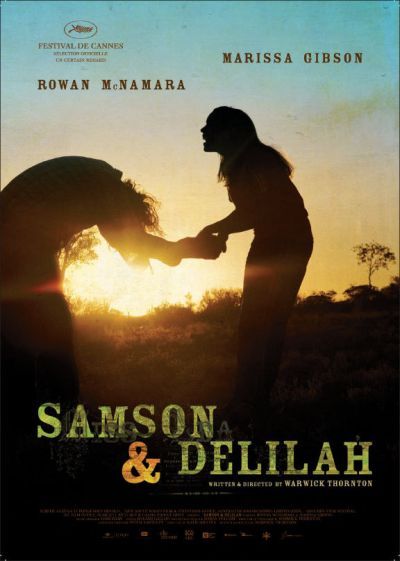Aboriginal love story sweeps Australian film awards

Your support helps us to tell the story
From reproductive rights to climate change to Big Tech, The Independent is on the ground when the story is developing. Whether it's investigating the financials of Elon Musk's pro-Trump PAC or producing our latest documentary, 'The A Word', which shines a light on the American women fighting for reproductive rights, we know how important it is to parse out the facts from the messaging.
At such a critical moment in US history, we need reporters on the ground. Your donation allows us to keep sending journalists to speak to both sides of the story.
The Independent is trusted by Americans across the entire political spectrum. And unlike many other quality news outlets, we choose not to lock Americans out of our reporting and analysis with paywalls. We believe quality journalism should be available to everyone, paid for by those who can afford it.
Your support makes all the difference.A teenage love story set in a desolate outback Aboriginal community has dominated Australia's national film awards, picking up best picture as it looks to a possible Oscar nomination.
The low-budget "Samson and Delilah" charts the slow and tender courtship between a petrol-sniffing youth and a teenage girl struggling to care for her ailing grandmother in the impoverished township.
Producer Kath Shelper said she hoped winning the Australian Film Institute (AFI) award would focus attention on the plight of Aboriginal Australians, many of whom live in remote communities where alcohol, drugs and violence are rife.
"When we were in Los Angeles a few weeks ago we met a Catholic nun called Sister Rose and she said to us after she'd seen the film, 'You know, Samson and Delilah are the children that God forgot'," she said.
"I hope that in us making the film, Samson and Delilah will now be the people that Australia will remember."
"Samson and Delilah" has been an unlikely hit, winning audiences at home and overseas despite the sparse dialogue, the fact that most of the film is shot in the indigenous language Walpiri and the gritty realism of the couple's lives.
The movie, which was made for 1.6 million dollars (1.46 million US), was awarded the Camera d'Or first film prize at the Cannes festival in May, with the jury describing it as "the best love film we've seen for many a year".
It is also Australia's entry for a nomination for best foreign-language film in the 2010 Academy Awards.
First-time director Warwick Thornton, who won the AFI awards for best direction and original screenplay, described the movie's success as "absolutely gorgeous".

Watch Apple TV+ free for 7 days
New subscribers only. £8.99/mo. after free trial. Plan auto-renews until cancelled

Watch Apple TV+ free for 7 days
New subscribers only. £8.99/mo. after free trial. Plan auto-renews until cancelled
"When I first started in the industry 17 billion years ago, something like the AFIs seemed... like a pie-in-the-sky dream," said Thornton, an Aboriginal who drew on his own experiences of growing up in central Australia.
"So to be here and we won best film, best screenplay, it's just so special, so beautiful."
The film's stars Marissa Gibson and Rowan McNamara, who were both 14 at the time the movie was made and who had never previously acted, shared the young actor award.
The AFI for best actor went to Anthony LaPaglia, better known for his role in the US series "Without a Trace", who won for his role as a journalist investigating the 1975 killing of five colleagues in East Timor in "Balibo".
"Australia", the Baz Luhrmann epic starring Nicole Kidman and Hugh Jackman, took honours for the highest grossing film at Saturday evening's awards ceremony in Melbourne.
Join our commenting forum
Join thought-provoking conversations, follow other Independent readers and see their replies
Comments